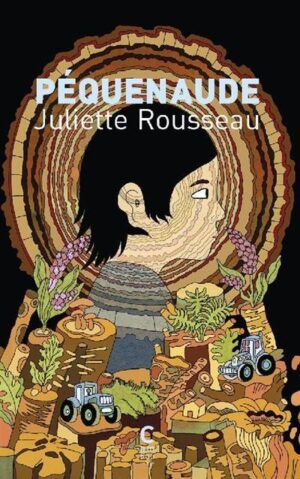
Following the success of La vie têtue, Juliette Rousseau continues to explore the links between the body and the land. As a woman and a rural dweller, she reexamines what it means to inhabit a place shaped by a troubled history, where gender, class, and environmental violence intertwine to give form to both bodies and land.Using a narrative structure inspired by the seasons, she weaves together poetic and reflective texts on a range of themes: rural life, the legacy of peasantry, industrialization, our relationship with living things, traditions, transmission, language, and class issues.
By questioning her role as a writer-poet and “hillbilly,” Juliette Rousseau continues to craft a powerful and moving language that captures what binds us to the land—its beauty and its violence.
